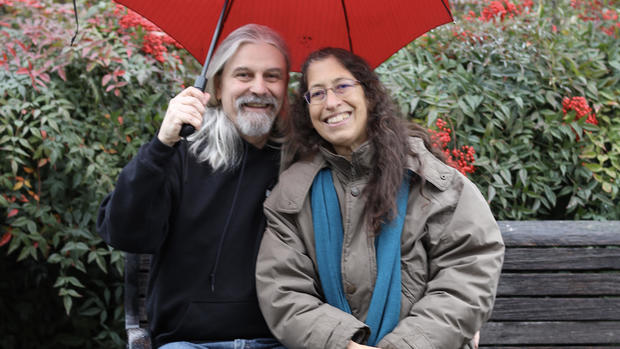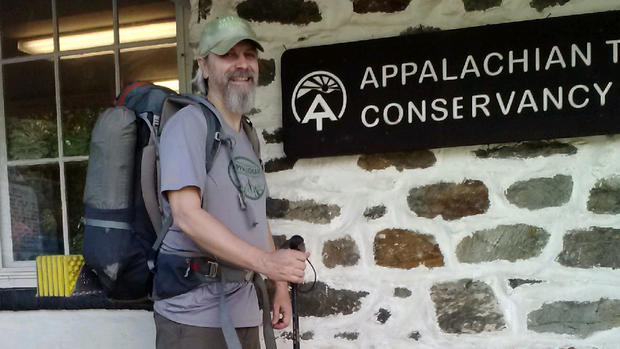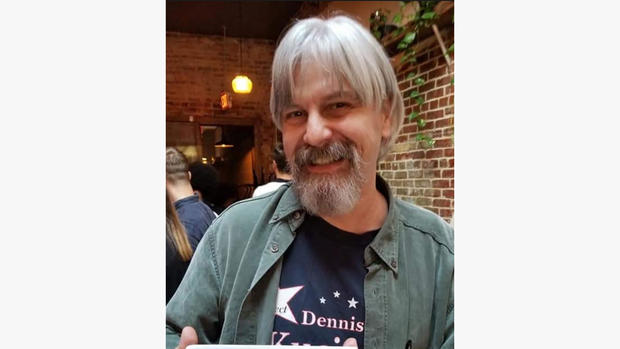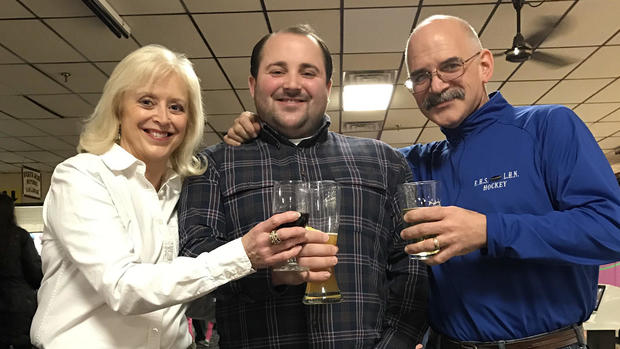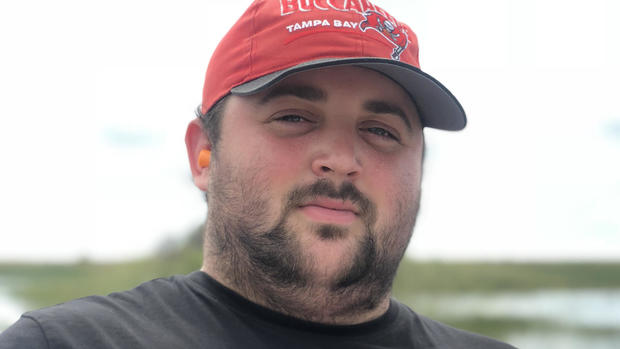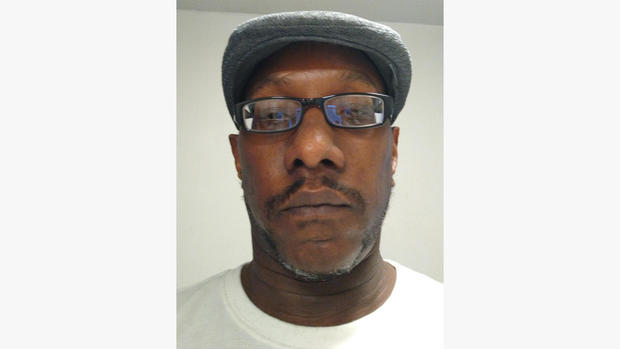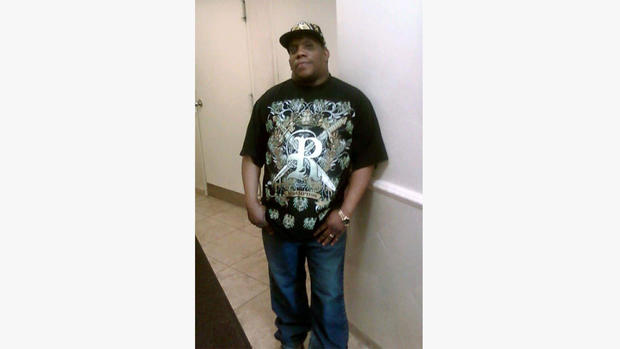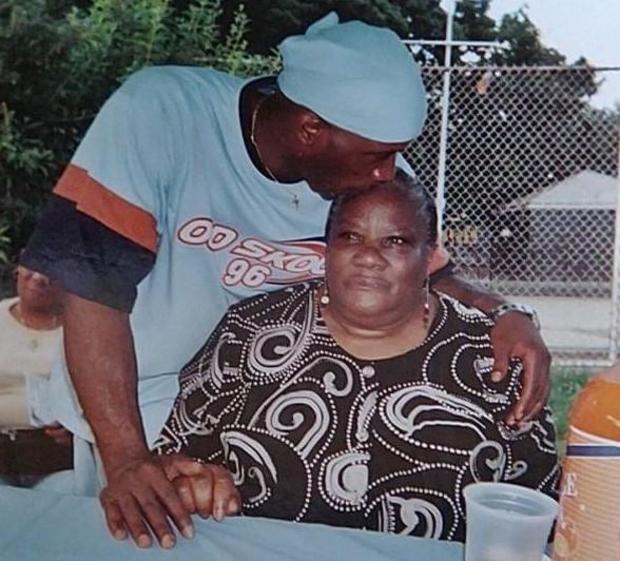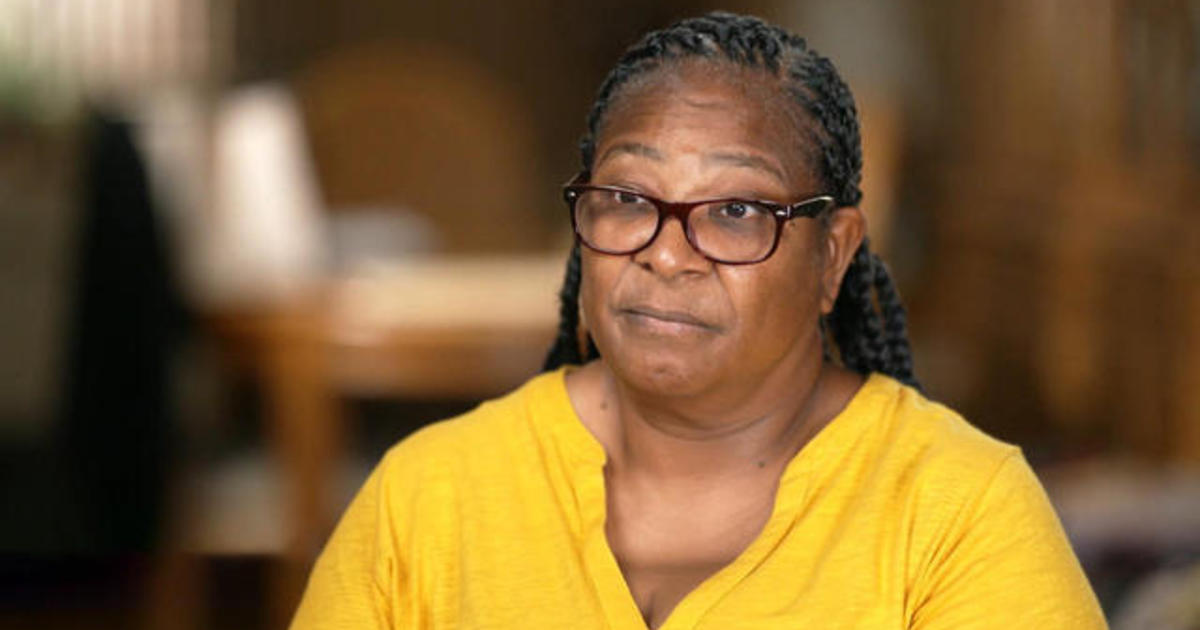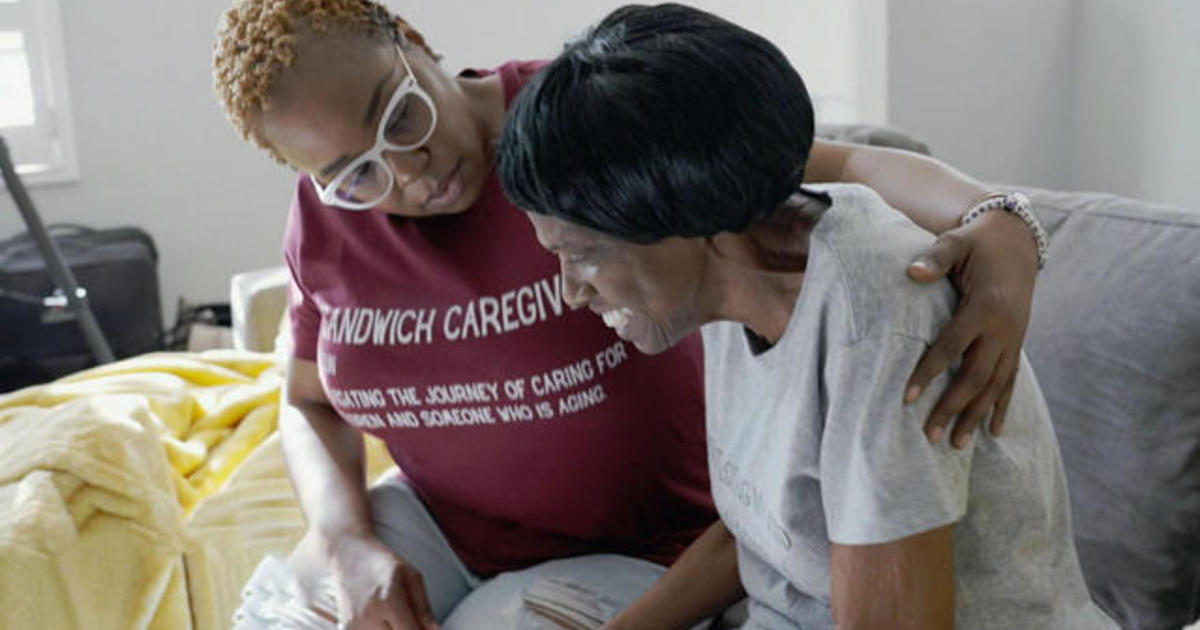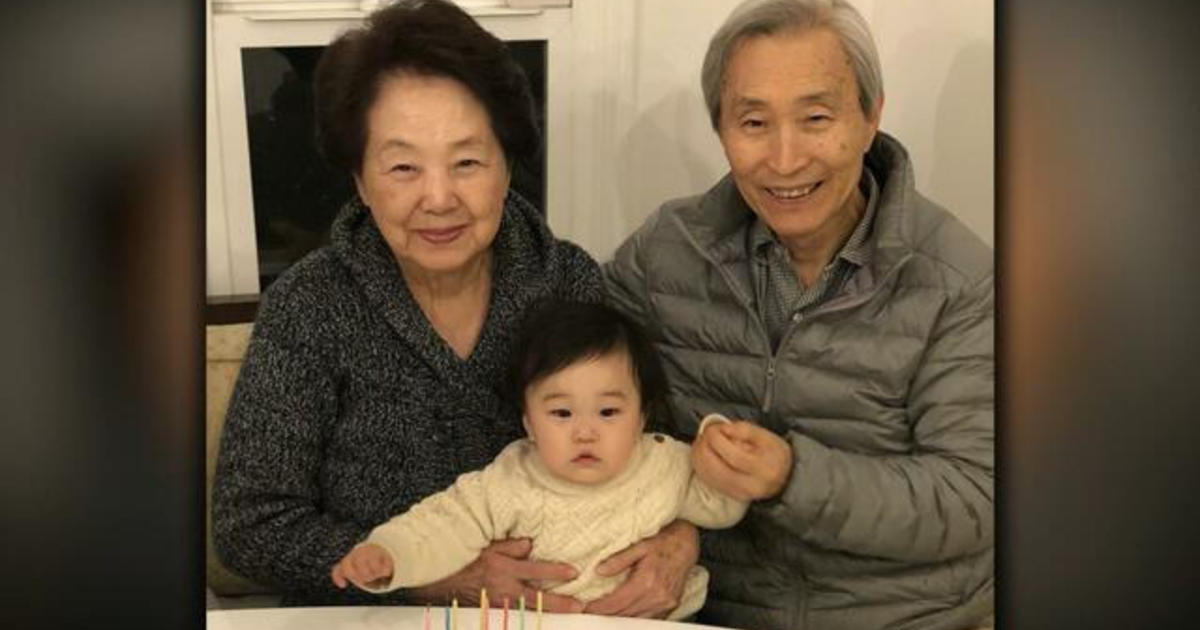Coronavirus: The hidden pain and sorrow of dying at home
Many victims of the novel coronavirus take their last breath through a ventilator. Often, they are alone. Their loved ones are prohibited from being with them in person, but if they are fortunate, they might catch a last glimpse through a smartphone screen. In these patients' final moments, it is the doctors and nurses who see the virus's grim toll, bearing witness behind facemasks and protective gear. Roughly 50,000 deaths have been attributed to COVID-19 in the United States, most of them taking place in the eerie isolation of an intensive care unit.
But an uncounted number of victims have died in a markedly different way, suddenly robbed of life in their beds or on their couches, in the home where doctors had told them to shelter for safety. Many of their deaths are not factored into the national COVID-19 death toll because medical examiners did not have the capacity to test them for the virus.
While family members of those who die at home have seen death's pallor, their grief takes many shades. Some are angry, wondering whether things might have turned out differently if a doctor had directed their loved one to go to the hospital. Some are grateful for the extra moments they could share. Some are left to sort through their loneliness in the very room where the death took place.
Here, three people who watched helplessly as death gave no notice share their loved ones' last days in the place they called home.
"He was with me. He was home. He was here. And he was loved." Maris Burton on the death of her fiancé, Tim Liszewski
TIM LISZEWSKI, 60, SOUTH CAROLINA
As told by his fiancée, Maris Burton
People like Tim who are dying at home, it's a waste, and it's a tragedy. There are people who have died in New York City. I'm from New York. My heart goes out to the people of New York. The towers coming down was awful. This is worse. This is affecting all of us, whether we're in New York or not.
It was so insidious. And it snuck up slowly.
When news last month indicated COVID-19 had begun spreading throughout the world, Tim Liszewski did not think he had reason to be worried.
The 60-year-old did not get sick often and had no underlying health issues—no diabetes, no heart disease. He dealt with two pulmonary embolisms a few years ago, but his fiancée Maris Burton said he had recovered well and subsequently had no compromised lung function. He was also physically active. An avid hiker, he had hiked the northern portion of the Appalachian Trail last spring, and he and Burton were preparing to hike Spain's Lighthouse Way for their honeymoon this May. So when he left his Columbia, South Carolina home to fly to Wisconsin for a work retreat on March 9, he joked with Burton about bringing disinfecting wipes to clean his seat on the plane.
When Liszewski returned home from the retreat on March 12, he was coughing and sneezing. The next day, Burton said, they took a three-mile walk along the Saluda River, but by that weekend, Liszewski was not feeling well enough for their usual hike. Nor could he muster the energy to perform his weekly service work feeding the homeless and volunteering for the Nickelodeon, a local nonprofit movie theater.
Figuring Liszewski just had a cold, he and Burton stocked up on over-the-counter medicine and comfort food, including chicken soup and a bag of navel oranges. Liszewski cut one the next day, offering a slice to Burton. "Man, this is a disappointing orange," Burton remembers saying. "It just doesn't taste right."
By the following weekend, they both felt ill, with temperatures hovering around 100 degrees. Liszewski consulted a doctor who found that his symptoms qualified him for a COVID-19 test, so he got tested that Saturday while Burton stayed in bed, too sick to leave. The doctors told him he would get the results back in two to five days.
We have our wedding planned for May 23rd. The save the date cards have gone out. We've been following the coronavirus not just with our illness, but we're hearing about in Italy, and France, and China, and out in California and Washington State. This thing is here.
Spain, where we're planning to honeymoon, is making noises about closing it down. So Tim and I starting to talk about, "You know, I think we're going to have to postpone it, and not just for a couple of months." We want people to be able to travel. And we're thinking, you know, "What's a year? We've waited this long. It's been 15 years, engaged for five. So we'll just plan this for next May 23rd or 22nd to be a Saturday." So we're kind of coming to peace at, "All right. We're not getting married this spring."
Liszewski got his first taste of political activism in 2004 when he volunteered for Democratic presidential primary candidate Rep. Dennis Kucinich, who was from his hometown of Cleveland. That year, Liszewski attended the Democratic National Convention, where he was one of 43 delegates who cast their vote for Kucinich, Burton said.
After the election, Liszewski was recruited to become director of the Carolina Peace Resource Center, a public interest group in South Carolina that advocates non-violence. A post on the group's Facebook page remembered Liszewski: "Tim is fondly remembered for, among other things, his kindness and commitment, dry humor, and for quickly organizing a large candlelight rally with Gold Star mothers Cindy Sheehan and Elaine Johnson at Columbia's Martin Luther King Park in 2005 despite only two days' notice, not a small feat."
Recently, Liszewski became the Great Plains regional director for Indivisible, a grassroots organization, whose goal is to elect progressive candidates and defeat President Trump's agenda.
Tim was an activist, a kind-hearted, gentle man. He loved sports, loved his Cleveland Indians, the Cavaliers, Cleveland Browns. And a lover of life, of music, of literature, nature, and art. He loved to make friends wherever he went, but he was also an introvert. One of the things that we talked about a lot was how his chosen field was being an organizer and a trainer where he had to interact with people on a daily, hourly basis, and then he'd be exhausted. And the end of a conversation or a meeting, he'd come home and just be quiet.
As Liszewski awaited the results of his COVID-19 test, Burton says his condition got worse. His head hurt; he was nauseated and had no appetite. He tried eating a favorite candy—jellied fruit slices— but it suddenly tasted strange to him. When his temperature hit 101.9, he called his doctor, who prescribed Zofran for the nausea and told him to up his dose of extra-strength Tylenol to two pills at a time.
Before he went to bed on Friday, March 27, his temperature had lowered to 99 degrees.
He wakes up Saturday morning, 6:30. He's restless, can't sleep, and says, "You need to sleep. I'm going to go downstairs. I'll just play on the computer or something." I go, "Okay." So he goes downstairs, and I go back to sleep and wake up at about 10:00. I see he's not in bed with me. And the house just feels still. I have a parrot and typically when any of us are downstairs, the parrot likes to chat to us. He doesn't talk, but he makes an awful lot of noise. And I hadn't heard any squawking from downstairs. And I go downstairs.
Death has a stillness. It's more than absence of life. It is ultimate quiet. And he's slumped over on the couch… And I knew he was dead.
Four days after Liszewski died—and 11 days after he took the test—the county coroner's office called Burton to confirm her fiancé had been infected with COVID-19. Because Liszewski tested positive for the virus, the coroner could not perform an autopsy on him out of safety for morgue personnel.
Burton is not sure if receiving the results earlier would have made a difference. Liszewski had a fever, a headache and lost his sense of smell—not symptoms they likely would have deemed worthy of going to the hospital, she said.
But she said she is frustrated that doctors might not know how to prevent deaths like Liszewski's in the future. His death certificate lists acute respiratory distress syndrome, pneumonia, and COVID-19 as causes of death; Burton disagrees with that conclusion. Liszewski never complained about shortness of breath or trouble breathing, she explains.
Burton wonders: If the coroner cannot perform an autopsy to determine what happened, how the coronavirus paved its path of destruction, how can doctors prevent deaths like Tim's in the future?
Had he gone into the hospital, he would have been in isolation because he was suspected COVID-19. I'm suspected COVID-19, so I could not have been with him. He would have died in the hospital with not even a nurse around because the sudden death.
I am blessed and grateful that Tim died at home with me. I didn't say goodbye because I didn't think it was goodbye. But we were doing our usual hugging and kissing. He was with me. He was home. He was here. And he was loved.
BENJAMIN HIRSCHMANN, 24, MICHIGAN
As told by his father, Robert Hirschmann
This is a hole in your heart that will never be filled again. You know, as time goes on, I'm sure we'll reach a point, my wife and I, that we'll be able to think about him and smile. But my wife lost her father 17 years ago, and she said it was devastating. But it's nothing compared to losing a child.
Parents aren't supposed to be burying their children. It's supposed to be the other way around. It was on March 31, so it's still almost surreal. And you have good days and bad days. But it's the little things that will happen or you'll see that really make it hit home that this is real. And those are the times you just break down.
When Robert Hirschmann came down with flu-like symptoms last month, he knew he had to isolate from his wife, Denise, and their four children.
A two-time cancer survivor, Hirschmann has used a feeding tube for years because of the long-term side effects of radiation treatments for stage-four neck cancer. The tube has cause him to aspirate, which has led to pneumonia nearly a dozen times, so when he learned about the symptoms of COVID-19, he knew he was high-risk. He confined himself to his bedroom.
Elsewhere in Hirschmann's Fraser, Michigan home, his 24-year-old son Ben was quarantined in his own room. The younger Hirschmann began feeling sick around March 19, and when the coughing, headache, and fever persisted for a few days, he decided to seek medical care. Ben couldn't see his primary care physician in person because she was taking all her appointments through telemedicine, Robert said. The hospital system his doctor is with was using the videoconferencing format to protect its healthcare providers and brace for a surge of COVID-19 patients.
Over the video appointment, Ben's doctor told him he probably had the flu, his father said. Ben was prescribed cough medicine and told to take over-the-counter medicine to treat his fever and headache. Then the doctor told him to stay home.
Isolated in their separate bedrooms, Robert and his son didn't see much of each other as they tried to recuperate.
Ben, any picture you see of him, there's a smile on his face and a twinkle in his eye. I mean, when he walked into a room, people smiled, and it became a happier place. He loved to dance. He went to his cousin's wedding that was in Jamaica, and he was up on stage in the dance contest. And he won it, of course. He had a heart of gold. He would do anything for anybody.
As much as a staunch conservative he is, he's not one that hates the other side. If you have different views than him, that was fine. And he could still become good friends with you. You know, a good person's a good person regardless of their political persuasion.
Robert said wherever his son went, friendships followed—Ben's all-boys Catholic high school, Grand Valley State University, and the rallies he attended in support of President Donald Trump.
Ben was an active volunteer for the Michigan Republican Party, and in 2016, even landed a spot in the VIP section behind then-candidate Trump during a speech in Grand Rapids. In 2018, he worked phone banks at the local Republican headquarters to get out the vote during the midterm elections, and earlier this year, he attended anti-impeachment rallies. At each event, he connected with fellow Trump supporters from around the country.
"A lot of us are from other states," Ben told a Buzzfeed reporter at a Trump rally in 2017. "This is a great way where we can all meet up again and coordinate and see each other."
A few years ago, Ben interned for Michigan State Senator Peter Lucido. Lucido remembers an energetic young man who loved politics.
"At every event he makes the room swell with joy that he's there and anticipation of what's to come," Lucido said. "This young man would have made a very special public servant to the people of Michigan."
I know they've said there's cases where people think they'll come on quickly and within a day, and they can crash and burn. The night before, my wife said he still had the cough, wasn't feeling good, and was a little bit weak. He was just taking Nyquil for a headache. But she hadn't heard the rasping in his lungs when he talked. I mean, he was still sick. But not being doctors, we were thinking it was just a flu bug, didn't know the extent. And we don't have a stethoscope here, not that I would know what to listen for anyways.
As the days wore on, Ben's condition wavered between improving and declining. But by March 30, he still had a cough and a fever and felt it was time to talk to the doctor again. In that second telemedicine appointment, Robert said, Ben's doctor told him he looked and sounded a little bit better. She reiterated that the illness was likely caused by the flu and advised him to keep treating it at home.
Thirteen hours later, around 5:00 the next morning, Ben woke up with a terrible headache. He was sweating and shaking. His mom called 911, told Ben to get dressed, and woke up her husband.
When Robert came out of his bedroom, he saw his son had collapsed in a chair. He joined his wife in performing CPR until the ambulance arrived.
I'm actually a retired police officer so I understand how this works. And as they were working on him, I realized full well that they weren't going to transport to the hospital unless they got a heartbeat back, just because of the conditions. And they weren't able to bring him back at that time.
The bitterness we feel is that, you know, there's little doubt in my mind that if he had actually seen his doctor face-to-face, where she could have taken his vitals and listened to his lungs, that he would probably be alive today.
But for anybody out there that if you have it, or if you think you do and you're self-monitoring, err on the side of caution. And don't hesitate to get yourself looked at.
Ben's autopsy revealed his lungs were filled with pneumonia caused by COVID-19, according to Robert, who believes doctors' reliance on telemedicine led to his son's death.
State Senator Lucido said he is now drafting legislation he calls "Ben's Bill," which he said would examine how Michigan uses telemedicine.
"There is a greater good with telemedicine, but it depends on the case," Lucido said. "In COVID-19, there was no telling what was going to happen and when it was going to happen, which makes the difference."
After his son died, Robert kept coughing. He went to the emergency room, where doctors performed an X-ray. Even though he was high-risk and had a son who had died from the coronavirus, Robert said the doctors would not test him for COVID-19. Instead, encouraged by his X-ray results, doctors sent him home to stay in quarantine.
We always said he was the life of the party. Not that he was a wild man, but just because he would brighten up any room he went into. So my advice is to live like Ben. Live it to the fullest and be happy. And spread the happiness—because you just don't know when you can be taken away.
YVETTE JUDGE, 77, NEW YORK CITY
As told by her son, Joseph Friday
This disease is serious. It doesn't discriminate. It snatches you and stops your heart, and you're done. And people not taking it serious are going to be sorry. I didn't know how serious this thing was until I actually experienced it firsthand, and I witnessed this firsthand not once, but twice. This beast right here is really unbelievable. None of us knew.
It started with a cough.
By the time COVID-19 ran its course through Joseph Friday's life, it had taken his mother, his brother, and his livelihood. Now he sits alone in the Bronx apartment he used to share with his mother, Yvette Judge, and his brother, Matthew Friday, listening to news about the virus that forever changed his family.
Before the cough, Joseph's life was that of a caregiver. Matthew had suffered multiple strokes and had issues with his heart and liver. Judge was a cancer survivor whose left side had been weakened by chemotherapy treatments. Joseph took them to doctor's appointments, washed their clothes, bought their food, and counted out their medicine multiple times a day. Since June, he had been paid to take care of Matthew through New York's Consumer Directed Personal Assistance Program (CDPAP). Funded through Medicaid, the program pays tens of thousands of New Yorkers to care for their ailing loved ones.
So when he began seeing news articles about the new coronavirus, Joseph knew his brother's and mother's compromised immune systems put them both at risk.
Then, on March 20, Matthew started coughing. Soon, Joseph and their mother were coughing, too.
Four days later, Matthew fell coming out of the bathroom. He told Joseph not to worry; he had only tripped. But the next day, Matthew fell again, this time into the coffee table. As Joseph lifted him into a chair, he saw his brother's hands were shaking. Once in the chair, Matthew could barely move. Joseph called 911.
The ambulance came and took Matthew to nearby St. Barnabas Hospital, where Joseph said he told staff his brother had been coughing. The next day, just six days after Matthew had begun coughing, hospital staff called Joseph to tell him his brother's heart had stopped—and that he had tested positive for COVID-19.
I was telling my mother that she's looking sickly. She was coughing, and I'm like, oh my God, we both got COVID. And there's nothing I could do at that moment because I know that her immune system was compromised, so I know she didn't have too long. So I was like, let's go to the hospital. Then I thought about it, and I said, well the hospital was crowded. The beds were full. And she was like, "No, I don't want to go."
Back at the apartment, Judge was getting sicker. Two days after her son died, she seemed disoriented. Joseph said he made her a cup of tea, but when he handed it to her, her hands were shaking so badly that she dropped it.
That night, as Joseph walked by his mother's room, he saw her foaming at the mouth. Her muscles were stiff and she was having a hard time moving, he said, so he dialed 911. But Judge stopped breathing before the ambulance arrived.
Joseph said emergency responders worked on his mother for 20 minutes but were not able to revive her. It would take another eight to nine hours, he said, before the medical examiner's office was able to pick up her body.
Any time I had to pass her, man, I just kept breaking down. This thing was tragedy, man. I know that I lost two family members to COVID. But then, the medical examiner's office called, and they said, "Oh, she died from something else." I said, "Well listen. Did they do a test for COVID?" They said, "No, she died from this and that." I mean, why wouldn't they do a test? It's not a waste of money. If you knew that someone in this house that had it, and they both were well until they started coughing, like, come on. Both of them died from COVID. And I had symptoms also.
The first two weeks were really hard because it's just the memories. I caught myself at first getting up, preparing the medicines, and just started breaking down. I broke down for at least about a week and a half, close to two weeks, I was breaking down.
While Joseph mourned his brother and mother, he nursed his own symptoms. He coughed. His muscles ached. He had diarrhea and no appetite.
Although his self-quarantine has now elapsed, Joseph mostly stays in his apartment for fear of transmitting the virus to someone else. He also worries about his income. His last CDPAP check arrived on April 10, he said, so his time is now spent trying to apply for unemployment insurance benefits.
He fills the rest of his days listening to the news. He has heard reports of COVID-19 sweeping through nursing homes around the country, and worries about his brother, Anthony Judge, who lives in a nursing and rehabilitation home nearby. Unlike their mother, Anthony does not have life insurance.
If COVID takes Anthony too, Joseph said, he would likely have to be buried in a mass grave in New York City's potter's field.
We didn't know that you could just get it by touching something, or from a train or a bus. But you know, you can't cry over spilled milk. There's nothing you can do about it. The only thing you can do is cover up, try to stay in, try to help prevent the spread of this thing.
Each housing unit should start distributing pamphlets. They should start distributing masks, you know, just to get involved, let people know that this thing is serious. The young generation really don't get the picture here. Some people in the middle-age generation don't get the picture.
This thing is real.
The first video above was produced and edited by Will Croxton. The second video above was produced by Brit McCandless Farmer and edited by Will Croxton.
